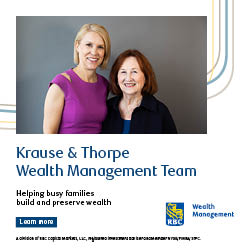Woodland Park Zoo will soon be featuring a new attraction in the form of shiny new solar panels! When they visit the zoo, visitors will see a set of solar panels powering the Rain Forest Food Pavilion when they stop by to get a snack. And up the street, if you look high atop the south roof of the Phinney Neighborhood Association’s iconic blue building, a similar set of panels can be seen, sending power to the PNA’s meeting and classrooms.
These solar projects make up part of Community Solar on Phinney Ridge, which also includes a third solar array on the roof of the zoo’s Commissary building, the behind-the-scenes animal food center and kitchen. The projects are sponsored by Seattle City Light and they will add almost 75 kilowatts of solar electricity to our grid, making it the largest community solar project undertaken in Washington State.
Locals might also view the made-in-Washington solar panels with a proprietary interest—because they may be community solar participants.
“Many of our customers want to help power their homes and businesses with solar energy,” says Seattle City Light Conservation Resources Director Craig Smith said. “Community Solar is an opportunity for our customers to do just that for as little as $150.”
The Community Solar program exists as a way for City Light customers who can’t or don’t want to purchase their own solar systems to have a way to add solar to the grid and to receive the benefits that come with owning solar panels, but at a size and cost that works for them. Locals don’t need to own a system, or even need to own a home. Any City Light customer can buy solar units in the project – starting as small as a 28 watt piece all the way up to 3500 watts (a 3.5 kilowatt system is common on a single family home in Seattle).
After the systems start producing energy (the PNA portion of the array should be connected within the next 2 weeks), Phinney Ridge community solar participants will receive annual City Light energy credits and Washington State incentive payments. By the time the project ends June 30, 2020, those payments will likely have totaled enough to repay the cost of units purchased, plus extra.
On July 1, 2020, ownership of the solar systems will be turned over to the PNA and the zoo, who will then own them outright and will benefit from the free solar energy as long as the systems are operational – easily another 40 years.
“We feel very fortunate to be able to put solar on our roof,” says PNA Executive Director Lee Harper. “Thanks to everyone who has helped us make this happen!”
“Saving animals and their habitats starts with a sustainable approach to resource conservation,” said Jim Bennett, Director of Marketing and Corporate Relations at Woodland Park Zoo. “In partnership with Seattle City Light, Woodland Park Zoo is proud to take part in Community Solar and move us one step closer to a carbon neutral community.”
To sign up or learn more about the program, click here. Units cost $150 can be paid on your City Light bill over a period of several months.
Full disclosure: Seattle City Light is an advertiser on My Ballard.


This is great!